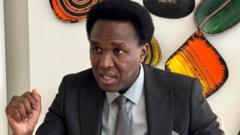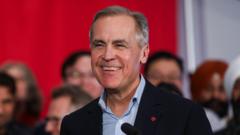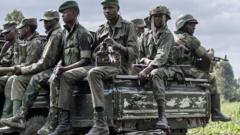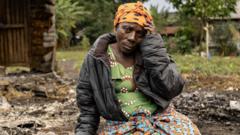With Mozambique's political landscape in turmoil after recent presidential elections, opposition leader Venâncio Mondlane announced plans to declare himself president on January 15. This declaration follows his rejection of the election results and has sparked protests across the country, highlighting tensions with the long-ruling Frelimo party.
Mozambique's Opposition Leader Declares Intent to Self-Install as President Amidst Unrest

Mozambique's Opposition Leader Declares Intent to Self-Install as President Amidst Unrest
Venâncio Mondlane rejects the election results of the Frelimo party, leading to nationwide protests and unrest.
Article text:
Mozambique is witnessing a dramatic escalation in political tensions as opposition leader Venâncio Mondlane announces his intention to install himself as president on January 15. This declaration follows a contentious electoral defeat, which he firmly denies, describing the results as rigged. His statements came in the wake of significant unrest and demonstrations by his supporters, who are demanding an end to the Frelimo party's 49-year rule.
On Christmas Eve, the streets of Maputo, the capital, turned into a near-deserted landscape, as residents stayed indoors fearing the escalating violence. Reports indicate widespread looting and vandalism, with offices of Frelimo, police stations, and businesses being attacked across the nation. This turmoil erupted after the Mozambique Supreme Court upheld the election victory of Frelimo's candidate, Daniel Chapo, a result Mondlane vehemently disputes.
In a virtual address to his followers, Mondlane rejected the ruling of the constitutional court, reiterating his plan to assume the presidency on the swearing-in day of Chapo. Chapo has yet to respond to these bold proclamations. Mondlane, who currently remains in self-imposed exile, has communicated with supporters through social media and has urged them to exercise peaceful protests, distancing himself from any calls for violence.
This recent election, where Chapo secured a controversial 71% of the vote compared to Mondlane's 20%, was the first for both candidates. The electoral commission later adjusted these numbers to 65% for Chapo and 24% for Mondlane. Human rights groups have reported over 100 deaths linked to the unrest since the polls, alleging that many of these fatalities were at the hands of security forces, a claim denied by police.
The backdrop of these events includes a volatile socio-economic climate, particularly among the youth struggling with high rates of unemployment and looking for progressive change. Mondlane, recognized for his evangelical background, formerly broke away from the opposition Renamo party to contest the elections independently. In sharp contrast, his opponent Chapo is branded as Frelimo's youngest candidate to date, emphasizing a narrative of organized political victory.
As the situation in Mozambique continues to develop, the world watches closely the unfolding interactions between the opposition and the ruling party, setting the stage for both potential breakthroughs and further conflict.
Mozambique is witnessing a dramatic escalation in political tensions as opposition leader Venâncio Mondlane announces his intention to install himself as president on January 15. This declaration follows a contentious electoral defeat, which he firmly denies, describing the results as rigged. His statements came in the wake of significant unrest and demonstrations by his supporters, who are demanding an end to the Frelimo party's 49-year rule.
On Christmas Eve, the streets of Maputo, the capital, turned into a near-deserted landscape, as residents stayed indoors fearing the escalating violence. Reports indicate widespread looting and vandalism, with offices of Frelimo, police stations, and businesses being attacked across the nation. This turmoil erupted after the Mozambique Supreme Court upheld the election victory of Frelimo's candidate, Daniel Chapo, a result Mondlane vehemently disputes.
In a virtual address to his followers, Mondlane rejected the ruling of the constitutional court, reiterating his plan to assume the presidency on the swearing-in day of Chapo. Chapo has yet to respond to these bold proclamations. Mondlane, who currently remains in self-imposed exile, has communicated with supporters through social media and has urged them to exercise peaceful protests, distancing himself from any calls for violence.
This recent election, where Chapo secured a controversial 71% of the vote compared to Mondlane's 20%, was the first for both candidates. The electoral commission later adjusted these numbers to 65% for Chapo and 24% for Mondlane. Human rights groups have reported over 100 deaths linked to the unrest since the polls, alleging that many of these fatalities were at the hands of security forces, a claim denied by police.
The backdrop of these events includes a volatile socio-economic climate, particularly among the youth struggling with high rates of unemployment and looking for progressive change. Mondlane, recognized for his evangelical background, formerly broke away from the opposition Renamo party to contest the elections independently. In sharp contrast, his opponent Chapo is branded as Frelimo's youngest candidate to date, emphasizing a narrative of organized political victory.
As the situation in Mozambique continues to develop, the world watches closely the unfolding interactions between the opposition and the ruling party, setting the stage for both potential breakthroughs and further conflict.





















